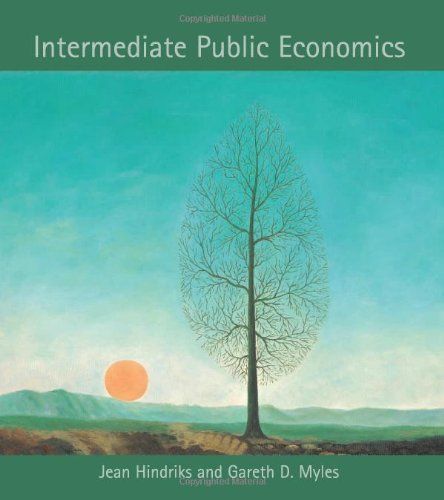
Intermediate Public Economics
Public economics studies how government taxing and spending activities affect the economy -- economic efficiency and the distribution of income and wealth. This comprehensive text in public economics covers the core topics market failure and taxation as well as recent developments in the political economy and public choice literatures. It is unique not only in its broad scope but in its balance between public finance and public choice and its combination of theory and relevant empirical evidence.After introducing the theory and methodology of public economics and reviewing the efficiency of the competitive equilibrium, the book presents a historical and theoretical overview of the public sector. It then discusses departures from efficiency, including imperfect competition and asymmetric information; issues in political economy, including rent-seeking (a topic often omitted from other texts); equity; taxation issues, including tax evasion and its consequences; fiscal federalism and tax competition among independent jurisdictions; and the intertemporal issues of social security and economic growth.This text introduces the reader to the theory of public economics and the most significant results of the analysis, providing an overview of the current state of the field. It is accessible to anyone with a background of intermediate microeconomics and macroeconomics and can be used in advanced undergraduate as well as graduate courses. Although the mathematics has been kept to a minimum, the book remains analytical rather than discursive. Annotated suggestions for further reading and numerous exercises are included at the end of each chapter.